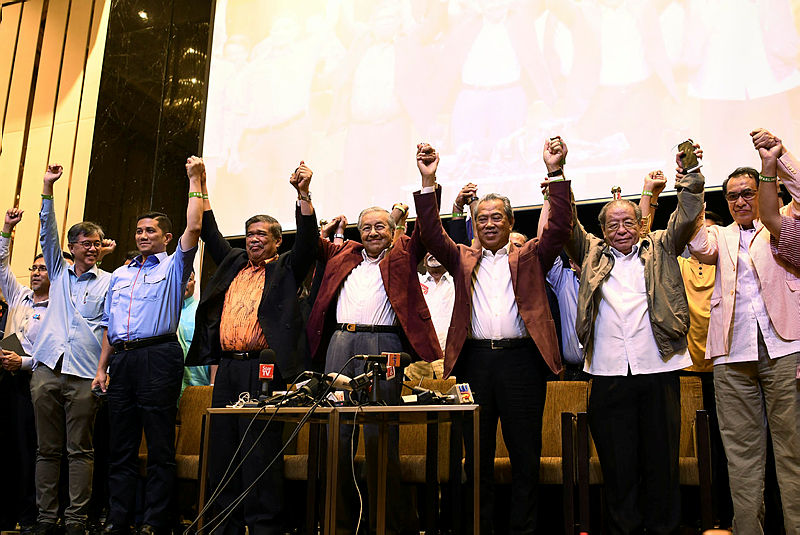**Comment by Amar Shah Mohsen
KUALA LUMPUR: Pakatan Harapan (PH) may have received its fair share of criticism, particularly for failing to deliver on some of its promises. Yet, the coalition continues to gain strength in Parliament.
On May 9, 2018, the then fledgling alliance of four parties pulled off the biggest upset in Malaysian political history when it sent Barisan Nasional (BN) packing. This was the first change of government in 60 years since independence.
Back then, PH wasn’t even a coalition officially. An application for official recognition for its logo was denied, so the four parties eventually agreed to contest under the PKR banner.
But it didn’t matter. PKR won 47 seats, followed closely by DAP with 42. The two smaller parties in the alliance – Parti Pribumi Bersatu Malaysia (PPBM) and Parti Amanah Negara (Amanah) – delivered 13 and 11 respectively. The PH-friendly Parti Warisan Sabah (Warisan) came in with eight, giving Tun Dr Mahathir Mohamad and his team a total of 121 seats in the 222-seat Dewan Rakyat.
The once-unshakable BN garnered only 79 seats. But together with PAS’s 18, they managed to deny PH a two-thirds majority.
The remaining four seats were won by independents, but almost immediately after the polls, one of them, Prabakaran Parameswaran, who won in Batu, joined PKR. At age 22, he is the youngest parliamentarian in the country.
Since then, many more have made a beeline for PH. Despite a promise not to admit former Umno MPs into the coalition, Mahathir’s PPBM eventually accepted them.
PH also welcomed Datuk Seri Wilfred Madius Tangau, the sole parliamentarian from the United Pasokmomogun Kadazandusun Murut Organisation (Upko).
PH now has 138 seats in the Dewan. But it is still 10 short of the magic number – the 148 it needs to push through an amendment to the Federal Constitution to restore the status of Sabah and Sarawak as equal partners with the peninsular in the Federation of Malaysia.
Unless there are more crossovers, PH will have to depend on some opposition MPs to vote across party lines.
It must be noted that PH’s recent gains has not been through grassroots support. An MP changing his loyalty does not exactly reflect the sentiments of those who had voted for him in the first place.
But history will judge these MPs.














